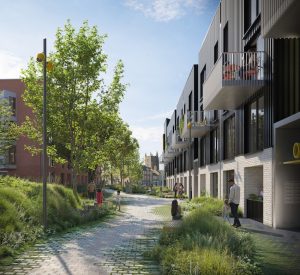LSH heralds Midlands property investment market boom

THE West Midlands saw a 44% increase in commercial property market investment in 2014 according to research from Lambert Smith Hampton (LSH).
It suggests the increase – to £2.31bn from £1.59bn in 2013 – is partly a result of UK institutional investors looking for opportunities outside London.
Investment in the UK commercial property sector as a whole totalled £20.5bn in the final quarter of 2014 – a 26% increase on the previous quarter and the highest quarterly performance on record.
This performance helped to propel investment for the year as a whole to £59.6bn – the second highest annual total on record after the £61.7bn posted in 2006, and 18% greater than the volume of deals in 2013.
The latest edition of LSH’s UK Investment Transactions report reveals that investment in the regions increased by 41% to £21.1bn for the year as a whole – the second highest figure on record.
This is the primarily the result of the resurgence of UK institutional investors buoyed by improving economic sentiment beyond the capital.
Overseas investors continue to be the largest buyers of UK commercial property, with investment from the US more than doubling year on year and interest from the Far East also increasing significantly.
Adam Ramshaw, head of office and director of capital markets at LSH in Birmingham, said: “The commercial property investment market enjoyed a stellar 2014, and activity was within a whisker of breaking the record that was set at the height of the last boom in 2006.
“Transaction volumes are now roughly double what they were as recently as 2012, which reflects investor appetite for commercial property in both London and the regions.
“While the headline numbers may invite comparisons with the last boom, there is an important difference this time: investors are now considerably less reliant on debt finance.
“As a result, our forecasts point to transaction volumes returning closer to trend levels in 2015. The uncertainties surrounding the forthcoming General Election may also serve to dampen activity.
“Against the general trend of a softening in investment volumes, expect the so-called ‘alternative sectors’ – such as healthcare, student accommodation and the private rented sector – to be major growth areas.
“Investors will also move up the risk curve to make the most of secondary opportunities, and those with in-depth market knowledge are going to be in the strongest position to capitalise.”









